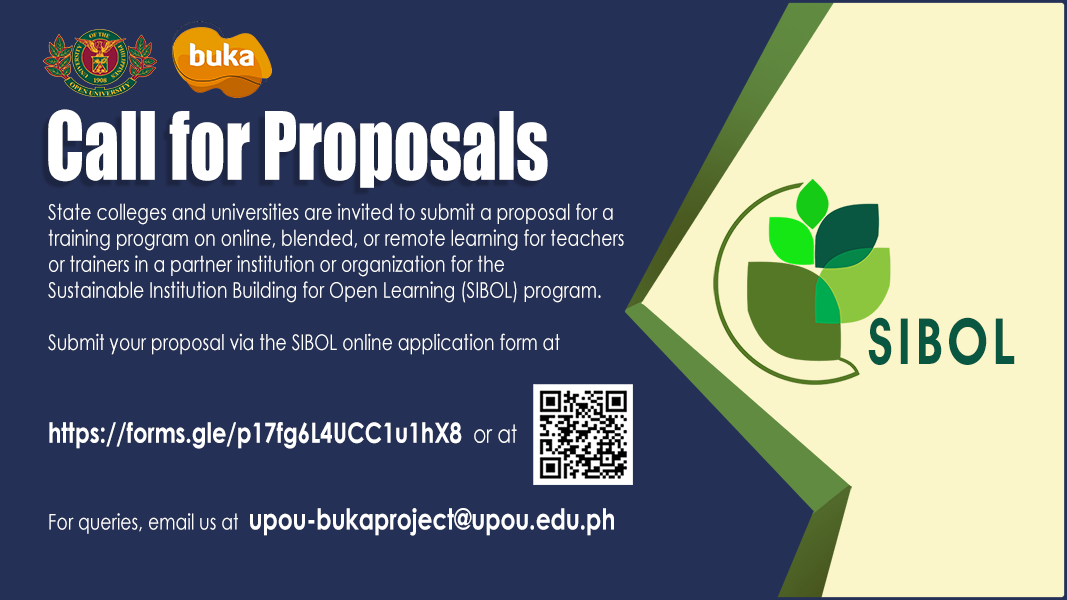Republic Act 10650 or the “Open Distance Learning Act” mandates the University of the Philippines Open University (UPOU), the fifth constituent university of the UP System, to assist the Philippine Commission on Higher Education (CHED) and the Technical Education and Skills Development Authority (TESDA) in providing support to higher education institutions (HEIs) and post-secondary schools in developing and providing high quality open and distance e-learning programs and courses. In particular, UPOU is expected to “assist other interested educational institutions in developing their ODL programs, courses, and materials for specific learner groups or the public at large” and “help capacitate ODL teachers and practitioners through capacity building and professionalization programs.” UPOU is also expected to help establish ‘zonal ODL centers’ in each region that “shall take charge of the training of teachers of ODL programs.”
UPOU proposes to meet this mandate through its Sustainable Institution Building for Open Learning (SIBOL) program under the European Union-funded “Advancing Equity and Access to Higher Education through Open and Distance Learning” or BUKA project.
SIBOL aims to build the capacity of selected public higher education institutions (HEIs) in the development and delivery of teacher training programs in online, blended, or remote learning, and to build a network of such institutions that shall form the core of zonal ODL centers in the Philippines. Specifically, through SIBOL, UPOU shall provide mentoring and technical assistance to qualified participating institutions in the design, development, implementation, and evaluation of their proposed training program in online, blended, or remote learning. Participating institutions are expected to propose a training program in online, blended, or remote learning intended for delivery in 2022 as a public service1 to a specific group or groups of teachers or trainers in a particular area or region, in response to a well-defined need.
Institutions that are interested in participating in the SIBOL project are invited to submit proposals under this call.
_____________
1 This means that the participating institution shall not charge or collect fees from participants in these training programs.


